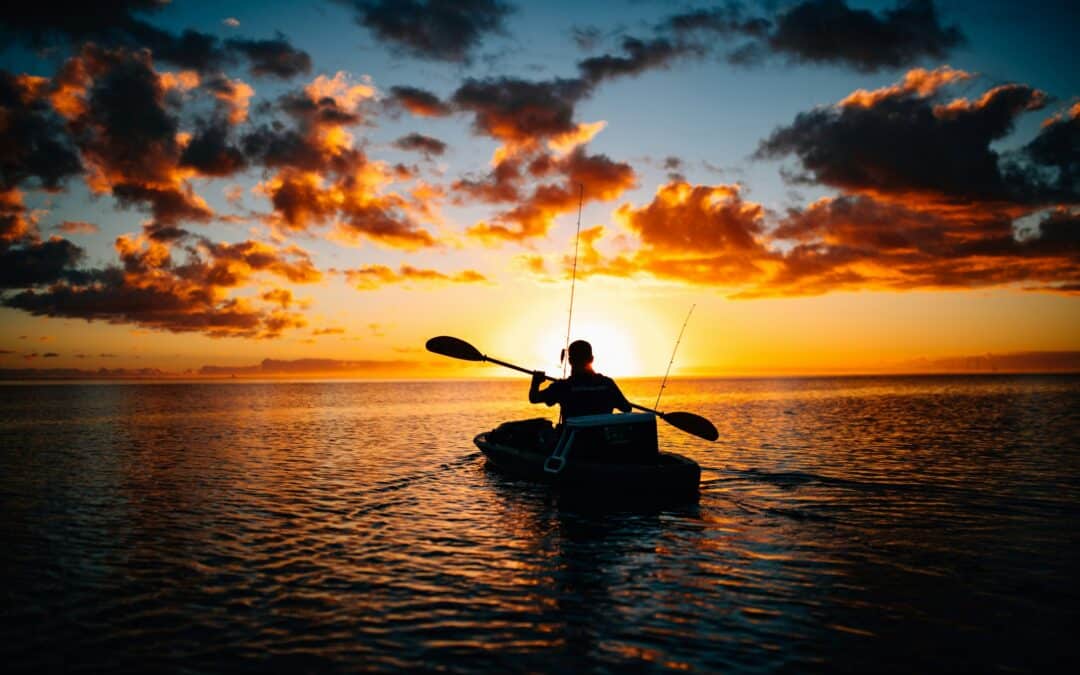Are you ready to explore the vibrant and breathtaking wonders of Costa Rica, while also making a positive impact on the environment? Look no further! In this article, we will guide you through the best eco-friendly experiences that this remarkable country has to offer. From hiking through lush rainforests to immersing yourself in vibrant local communities, Costa Rica provides endless opportunities to embrace sustainable living and connect with nature in a meaningful way. Get ready to embark on an unforgettable adventure as we unveil the top ways to experience Costa Rica’s sustainable lifestyle!

Exploring Costa Rica’s National Parks
Costa Rica is renowned for its incredible natural beauty and commitment to environmental preservation. One of the best ways to experience the country’s sustainable living is by exploring its national parks. Each park has its own unique characteristics and offers a variety of eco-friendly activities for visitors. From promoting bio-diversity conservation to identifying native flora and fauna, these national parks provide a wealth of opportunities to connect with nature and learn about sustainable practices.
Promoting bio-diversity conservation at Corcovado National Park
Corcovado National Park is a true gem of Costa Rica, teeming with a diverse range of flora and fauna. With its pristine rainforest, mangrove swamps, and untouched beaches, Corcovado is a haven for biodiversity. By visiting this national park, you not only get to witness the incredible natural beauty of Costa Rica but also contribute to its conservation efforts. The park actively promotes bio-diversity conservation through programs aimed at protecting endangered species, preserving habitats, and promoting sustainable tourism practices.
Discovering eco-tourism activities in Tortuguero National Park
Tortuguero National Park is famous for its efforts in protecting endangered sea turtles and their nesting grounds. The park’s commitment to eco-tourism is evident through various activities that allow visitors to experience the wonders of nature while leaving a minimal impact on the environment. Guided turtle tours, kayaking through the park’s labyrinthine waterways, and exploring its dense rainforests are just a few of the eco-friendly activities that Tortuguero has to offer. By participating in these activities, you not only support the park’s conservation efforts but also create unforgettable memories.
Learning sustainable practices at Manuel Antonio National Park
Manuel Antonio National Park combines breathtaking natural landscapes with a focus on sustainable practices. This park is known for its well-maintained trails, knowledgeable guides, and educational programs aimed at raising awareness about sustainable living. By exploring Manuel Antonio, you can learn about conservation practices such as waste management, renewable energy usage, and reforestation efforts. The park provides a valuable learning experience for visitors, inspiring them to adopt sustainable practices in their own lives.
Identifying native flora and fauna at Rincon de la Vieja National Park
Rincon de la Vieja National Park is a paradise for nature enthusiasts who wish to delve deeper into Costa Rica’s incredible biodiversity. This park boasts a wide array of ecosystems, including forests, volcanic peaks, and hot springs. Guided hikes through the park allow visitors to identify native flora and fauna, providing an educational experience that emphasizes the importance of conservation. Rincon de la Vieja National Park serves as a prime example of how ecotourism can contribute to the preservation of natural resources and the protection of endangered species.
Sustainable Accommodations in Costa Rica
When it comes to sustainable living, Costa Rica doesn’t stop at its national parks. The country is also home to a wide range of eco-friendly accommodations that prioritize environmental conservation and responsible tourism practices. These accommodations, known as eco-lodges, go above and beyond to ensure that their operations and policies align with sustainability principles. By choosing to stay at eco-lodges, visitors can enjoy a comfortable and conscientious experience while supporting the local economy and fostering ecological preservation.
Eco-lodges and their environment-friendly policies
Eco-lodges in Costa Rica are pioneers in sustainable tourism, setting an example for accommodations worldwide. These lodges have implemented various environment-friendly policies, such as using renewable energy sources like solar power and biomass, conserving water through efficient systems, and using eco-friendly toiletries and cleaning products. By embracing these policies, eco-lodges minimize their environmental footprint and provide guests with an immersive experience in harmony with nature.
Sustainable practices within the hospitality industry
Apart from eco-lodges, many traditional hotels in Costa Rica have also adopted sustainable practices. From minimizing single-use plastics to implementing recycling programs, these establishments understand the importance of reducing waste and conserving resources. Additionally, they often collaborate with local communities, purchasing locally sourced products and supporting local artisans. By choosing these sustainable hotels, visitors can enjoy a comfortable stay while knowing that their accommodation choice aligns with their values.
Hotels promoting renewable energy and waste management
Some hotels in Costa Rica go even further in their commitment to sustainability by promoting renewable energy and waste management practices. These forward-thinking establishments harness the power of solar, wind, or geothermal energy to minimize their reliance on traditional power sources. They also implement effective waste management systems, including recycling and composting, to ensure that as little waste as possible ends up in landfills. By staying at these hotels, visitors actively support the country’s goal of becoming carbon-neutral and contribute to the preservation of Costa Rica’s pristine environment.
The role of accommodations in local community support
Beyond their environmental commitments, sustainable accommodations in Costa Rica play a crucial role in supporting local communities. Many eco-lodges and sustainable hotels prioritize hiring local staff and offering training opportunities, empowering the community and promoting economic growth. Additionally, they often partner with local organizations and initiatives, creating a symbiotic relationship that benefits both the accommodation and the local community. By staying at these accommodations, visitors directly contribute to the prosperity of local communities, making their trips more meaningful and impactful.
Participating in Voluntourism
For travelers seeking a more hands-on approach to sustainability, Costa Rica offers a myriad of voluntourism opportunities. Voluntourism combines volunteer work with travel experiences, allowing visitors to actively contribute to wildlife conservation, community development, and environmental protection. By participating in voluntourism activities, travelers not only get to immerse themselves in the local culture but also make a positive impact on the communities they visit.
Contribution in wildlife conservations
Costa Rica is home to a diverse range of wildlife, including many endangered species. Voluntourism programs focused on wildlife conservation offer visitors a chance to participate in research projects, rehabilitation efforts, and community initiatives that aim to protect and preserve these species. By working alongside experts, volunteers can actively contribute to wildlife conservation while gaining a deeper understanding of the challenges these species face.
Planting trees to offset carbon emission
As awareness of climate change and deforestation grows, tree planting initiatives have gained popularity among environmentally conscious travelers. Voluntourism programs centered around reforestation give volunteers the opportunity to plant trees, restore damaged ecosystems, and offset their carbon emissions. These activities play a vital role in restoring biodiversity and mitigating the effects of climate change, while also providing volunteers with a tangible way to take direct action.
Volunteering opportunities in organic farms
For those interested in sustainable agriculture and supporting local food systems, voluntourism programs in organic farms provide rewarding experiences. Volunteers can participate in various farming activities, including planting, harvesting, and caring for organic crops. These experiences promote sustainable farming practices while offering volunteers a chance to connect with the land and learn about the importance of organic agriculture in preserving the environment.
Assisting in local schools and community improvements
Voluntourism programs in Costa Rica also extend to community development, where volunteers can contribute to education, infrastructure improvements, and community-led initiatives. By assisting in local schools, volunteers can help improve access to education and support the development of sustainable educational practices. Additionally, volunteers can participate in community projects aimed at improving infrastructure, such as building eco-friendly housing or creating sustainable water systems. These experiences provide a unique opportunity to engage with local communities, forging meaningful connections and leaving a lasting impact.
Responsible Wildlife Tours
Costa Rica’s abundant wildlife is a major draw for many visitors. However, it is essential to ensure that wildlife tours are conducted in a responsible and sustainable manner. By following guidelines for ethical wildlife interactions and choosing tour operators that prioritize sustainability, travelers can enjoy unforgettable experiences while minimizing their impact on the environment and respecting the wellbeing of the animals they encounter.
Observing wildlife without disrupting their habitats
Responsible wildlife tours in Costa Rica prioritize observing animals in their natural habitats without causing any disturbance. Whether it’s spotting exotic birds, observing monkeys swinging through the trees, or catching a glimpse of a jaguar, these tours focus on minimizing disruptions to the animals’ daily routines. By maintaining a safe distance and using binoculars or zoom lenses, visitors can enjoy the incredible wildlife while ensuring their actions do not harm or stress the animals.
Guidelines on ethical wildlife interactions
Ethical wildlife interactions are crucial to protect the wellbeing of animals and their habitats. Responsible tour operators in Costa Rica adhere to strict guidelines and codes of conduct to ensure that visitors can enjoy wildlife encounters while respecting the animals’ natural behavior. These guidelines often prohibit activities such as touching, feeding, or chasing animals, as well as using flash photography that can startle or distress them. By following these guidelines, visitors can have meaningful wildlife encounters while ensuring the animals’ welfare.
Tour operators obeying sustainability practices
To further ensure responsible wildlife tours, it is important to choose tour operators that prioritize sustainability. Look for operators that comply with national park regulations, support conservation initiatives, and minimize their environmental impact. These operators often have knowledgeable guides who provide educational insights into the area’s wildlife and conservation efforts, creating a more enriching and sustainable experience for visitors.
Insight into marine life through eco-friendly snorkeling and diving tours
Costa Rica’s coastal regions are home to an array of vibrant marine life, making snorkeling and diving popular activities for visitors. To protect fragile ecosystems such as coral reefs, responsible tour operators offer eco-friendly snorkeling and diving tours. These tours emphasize minimal impact on marine life, with guides providing detailed instructions on how to interact with the underwater environment without causing harm. By choosing these eco-friendly tours, visitors can explore the breathtaking underwater world while supporting marine conservation efforts.
Costa Rica’s Indigenous Communities
Costa Rica’s indigenous communities are an integral part of the country’s cultural heritage, and ecotourism provides an opportunity to support and celebrate their traditions. By engaging in eco-tourism activities centered around indigenous communities, visitors can foster cultural appreciation, contribute to sustainable economic development, and learn about native traditions and sustainable principles.
Respecting cultural heritage through eco-tourism
Eco-tourism activities involving indigenous communities offer a platform for visitors to learn about and appreciate their cultural heritage. Indigenous communities often share their traditional practices, including art, music, dance, and spirituality, allowing visitors to gain a deeper understanding of their way of life. It is vital to approach these experiences with respect and openness, appreciating the knowledge and traditions passed down through generations.
Supporting local craftsmanship and traditional industries
Visiting indigenous communities presents an opportunity to directly support local craftsmanship and traditional industries. Many communities produce intricate handicrafts, textiles, and artwork showcasing their unique cultural heritage. By purchasing these products, visitors contribute to the economic empowerment of indigenous communities, providing them with opportunities for sustainable livelihoods and preserving their traditional crafts.
Engaging in community-led tourism projects
Community-led tourism projects offer visitors a chance to actively participate in the daily lives of indigenous communities while respecting their autonomy and sovereignty. These projects are driven by the communities themselves, ensuring that tourism benefits them directly. From participating in traditional ceremonies and workshops to staying in community-owned accommodations, visitors can immerse themselves in the rich cultural traditions of indigenous communities while promoting sustainable economic development.
Learning about native traditions and sustainable principles
Eco-tourism activities involving indigenous communities encourage cultural exchange and mutual learning. Visitors can engage with community members who offer insights into their sustainable practices, including organic farming techniques and the preservation of natural resources. By learning about native traditions and sustainable principles, travelers gain a deeper appreciation for the interconnectedness of culture and nature, and the importance of preserving both.
Farm-to-Table Culinary Experiences
Costa Rica’s commitment to sustainability extends to its culinary scene, with a focus on farm-to-table experiences that promote local, seasonal produce and support sustainable farming practices. Through cooking classes, dining experiences, and tasting sessions, visitors can not only indulge in traditional Costa Rican cuisine but also learn about the importance of sustainable farming and support local businesses.
Local farms practicing organic and sustainable farming
Costa Rica is home to numerous organic and sustainable farms that produce a diverse range of fruits, vegetables, and other agricultural products. These farms prioritize environmentally friendly practices such as composting, crop rotation, and avoiding chemical pesticides and fertilizers. By visiting these farms, tourists can witness firsthand the commitment to sustainable agriculture and understand the importance of supporting local organic farmers.
Cooking classes emphasizing on local, seasonal produce
Cooking classes focused on local, seasonal produce offer an immersive culinary experience while promoting sustainable practices. Visitors can learn traditional Costa Rican recipes using ingredients sourced directly from local farmers. These classes often highlight the use of native herbs, spices, and tropical fruits, showcasing the vibrant flavors of Costa Rican cuisine while encouraging a connection with the land and a respect for seasonal eating.
Dining experiences supporting local businesses
Dining experiences that support local businesses are an essential part of sustainable tourism. Costa Rica has a thriving restaurant scene that values sustainability and supports local farmers, fishermen, and artisans. By dining at establishments that prioritize local sourcing and authentic Costa Rican flavors, visitors can savor the rich culinary heritage while directly contributing to the local economy.
Tasting sessions of traditional Costa Rican cuisines
Tasting sessions that focus on traditional Costa Rican cuisines provide an opportunity to explore the unique flavors and culinary traditions of the country. From sampling typical dishes such as gallo pinto (rice and beans) to indulging in the rich flavors of ceviche and casados (traditional Costa Rican plates), visitors can experience the diversity of Costa Rican cuisine while learning about the cultural significance of these dishes. These tasting sessions often incorporate sustainable practices, showcasing the importance of conservation and responsible sourcing.
Renewable Energy Tours
Costa Rica is a global leader in renewable energy, with a significant portion of its electricity generated from sustainable sources such as hydroelectric, geothermal, and wind power. Renewable energy tours offer visitors a chance to learn about Costa Rica’s commitment to clean energy and gain insights into the process of energy production while understanding the impact of renewable energy on local communities and the environment.
Visiting hydroelectric, geothermal, and wind farms
Renewable energy tours often include visits to hydroelectric plants, geothermal sites, and wind farms, showcasing the innovative technologies utilized in Costa Rica’s clean energy production. Visitors can learn about the processes involved in harnessing energy from water, geothermal sources, and wind, gaining a deeper understanding of the benefits and challenges of each renewable energy source. These tours provide a unique opportunity to witness firsthand how Costa Rica utilizes its natural resources for sustainable power generation.
Understanding Costa Rica’s commitment to renewable energy
Costa Rica’s commitment to renewable energy sets it apart as a global leader in sustainability. Renewable energy tours offer visitors insights into the country’s vision for a clean energy future by highlighting its ambitious goals and initiatives. By understanding the motivation behind Costa Rica’s commitment to renewable energy, visitors can appreciate the importance of collective efforts in combating climate change and transitioning to a more sustainable future.
Learning about the process of energy production
Renewable energy tours provide an educational experience, allowing visitors to learn about the intricate process involved in energy production. Guides explain the step-by-step processes of generating electricity from renewable sources, highlighting the environmental benefits and the technical complexities. Visitors can gain valuable knowledge about the challenges and achievements of renewable energy technologies, fostering a deeper appreciation for sustainable living.
Impact of renewable energy on local communities and environment
Renewable energy has far-reaching impacts on both local communities and the environment. By participating in renewable energy tours, visitors can learn about how clean energy projects have positively transformed communities, creating job opportunities, and fostering economic development. Additionally, these tours showcase the environmental benefits of renewable energy, such as reduced carbon emissions and minimized impact on natural resources. Understanding the positive impacts of renewable energy encourages visitors to support and advocate for sustainable energy practices in their own communities.
Public Transportation in Costa Rica
Public transportation plays a significant role in reducing carbon footprints and promoting sustainable travel practices. Costa Rica has a well-established and efficient public transportation system, providing visitors with sustainable options for exploring the country. From buses to bicycles, public transportation in Costa Rica offers convenient and eco-friendly alternatives for travelers.
Role of public transportation in reducing carbon footprints
By using public transportation instead of private vehicles, travelers can significantly reduce their carbon footprints while exploring Costa Rica. Buses, in particular, produce fewer emissions per passenger compared to individual cars, helping to mitigate the negative environmental impacts associated with transportation. Embracing public transportation allows visitors to minimize their contribution to greenhouse gas emissions and support a more sustainable way of traveling.
Efficient bus systems facilitating sustainable travels
Costa Rica’s bus systems are renowned for their efficiency and coverage, making them a viable option for sustainable travel. The country has an extensive network of buses that connect major tourist destinations, national parks, and rural areas. Public buses are generally well-maintained, comfortable, and affordable, providing a convenient means of travel for both locals and visitors. By utilizing the bus system, travelers can reduce their reliance on private transportation, contributing to the overall sustainability of their trip.
Promoting bicycle travel and walking tours
Costa Rica’s commitment to sustainable transportation extends beyond buses. The country actively promotes bicycle travel and walking tours, providing opportunities for tourists to explore destinations on two wheels or by foot. Many cities and towns offer bicycle rental services, bike lanes, and pedestrian-friendly infrastructure, making it safe and enjoyable to explore these areas at a slower pace. These initiatives encourage physical activity, reduce carbon emissions, and offer a more immersive and sustainable travel experience.
Eco-Friendly Adventure Sports
Costa Rica’s diverse landscapes make it an ideal destination for adrenaline-pumping adventure sports. From ziplining through the rainforest canopy to rafting down raging rivers, the country offers a wide range of exhilarating activities. However, it is crucial to ensure that these adventure sports are conducted in a sustainable and eco-friendly manner, minimizing their impact on the environment and promoting responsible tourism practices.
Sustainable practices in adventure sports
Responsible adventure sports operators prioritize sustainability in their operations, promoting practices that minimize environmental impact. This includes carefully designed trails and infrastructure to prevent erosion, limiting group sizes to avoid overcrowding, and using eco-friendly equipment and materials. By choosing reputable operators that follow sustainable practices, visitors can engage in adventure sports while preserving the natural beauty of Costa Rica.
Operators promoting minimum impact on the environment
Eco-friendly adventure sports operators prioritize minimizing their impact on the environment. They conduct thorough assessments of the potential environmental impacts of their activities and take measures to mitigate them. This includes educating participants about the significance of preserving the environment, providing guidelines on responsible behavior, and promoting the principles of leave-no-trace. By choosing these operators, visitors can enjoy thrilling experiences while safeguarding the fragile ecosystems they explore.
Enjoying nature with responsible ziplining, rafting, and hiking
Ziplining, rafting, and hiking are popular adventure sports in Costa Rica, offering thrilling experiences amidst breathtaking natural landscapes. Responsible operators ensure that these activities are conducted in a manner that respects the environment, minimizing disturbances to wildlife, and ecosystems. Ziplining courses are designed to avoid contact with trees or sensitive areas, rafting trips adhere to specific routes to prevent damage to river banks, and hiking trails are well-marked to prevent unintended detours. By participating in these activities with responsible operators, visitors can enjoy adrenaline-fueled adventures while supporting sustainable tourism practices.
Costa Rica’s Sustainable Fishing Practices
As a country with a vibrant coastal environment, Costa Rica is known for its sustainable fishing practices. Local communities place a strong emphasis on responsible fishing, striving to minimize negative impacts on marine life and preserve the delicate balance of ecosystems. By participating in sustainable fishing activities and supporting responsible fisheries, visitors can contribute to the conservation of marine resources while enjoying unique experiences.
Local communities promoting responsible fishing
Coastal communities in Costa Rica actively promote responsible fishing practices to protect marine life and preserve their livelihoods. By engaging in sustainable fishing activities led by these communities, visitors can witness firsthand the efforts made to protect fish stocks, minimize bycatch, and utilize sustainable fishing techniques. These experiences provide a deeper understanding of the challenges faced by local fishermen and the importance of sustainable fishing practices for the long-term health of marine ecosystems.
Impact of fishing on marine life conservation
Sustainable fishing practices play a vital role in marine life conservation. When done responsibly, fishing can support the productivity and resilience of ecosystems by removing excess biomass and preventing overpopulation of certain species. Sustainable fishing practices also prioritize minimizing bycatch, using selective gear and techniques to avoid unintentional capture of non-targeted species. By participating in sustainable fishing activities, visitors contribute to the conservation of marine resources, ensuring the long-term health and sustainability of these ecosystems.
Participation in catch-and-release fishing sessions
Catch-and-release fishing sessions offer a sustainable alternative for anglers who wish to enjoy the thrill of fishing while minimizing their impact on marine life. Instead of keeping the caught fish, participants release them back into the water unharmed. This practice allows for the enjoyment of fishing while conserving fish populations and contributing to the preservation of marine ecosystems. By participating in catch-and-release fishing, visitors can have a rewarding fishing experience while supporting sustainable fishing practices.
In conclusion, Costa Rica offers a multitude of eco-friendly experiences that allow visitors to engage with its commitment to sustainable living. From exploring its national parks to participating in voluntourism activities, every aspect of sustainable tourism is covered. By choosing sustainable accommodations, participating in responsible wildlife tours, and adopting eco-friendly transportation options, travelers can make a positive impact on the environment and local communities. Costa Rica’s dedication to renewable energy, sustainable fishing practices, and the preservation of indigenous cultures further highlights the country’s commitment to sustainability. With its unparalleled natural beauty and a wealth of sustainable experiences, Costa Rica is indeed a haven for environmentally conscious travelers.







0 Comments